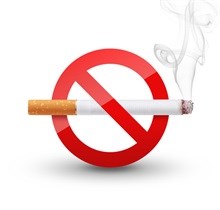World No Tobacco Day reminds SA to quit

In South Africa, an estimated 7.7 million adults use tobacco, with 29.5 billion cigarettes being consumed annually. Tobacco-related diseases kill over 44 000 South Africans annually, according to the World Health Organisation. SMASA (the Self-Medication Manufacturers Association of South Africa) is adding its voice to the World No Tobacco campaign.
Allison Vienings, executive director of SMASA, says the danger of tobacco is in the way it works. "Because there is a gradual decline in health over several years between the start of tobacco use and the physical sign of disease and illness, tobacco becomes an inconspicuous killer."
Tobacco caused 100 million deaths in the 20th century and, if current trends continue, it may cause one billion deaths in the 21st century. An approximate six million people worldwide die due to tobacco use annually, of which 600,000 are non-smokers dying from second-hand smoke.
"Following a healthy diet and exercising regularly becomes a wasted effort if you continue to smoke. Cigarettes contain more than 4,000 chemical compounds and at least 400 toxic substances, and include products such as tar, nicotine and carbon monoxide," explains Vienings.
If the ingredients contained in cigarettes do not leave a bad taste in your mouth, spare a thought for those around you. The health of non-smokers is compromised through exposure to second-hand smoke. Inhaling second-hand smoke increases a non-smoker's risk of developing lung cancer or heart disease by about 25%. Some of the diseases associated with second-hand smoke include heart disease, lung cancer and irritation of the eyes and nose in adults, and increased occurrences and worsening of asthma, coughing, wheezing, breathlessness and pneumonia in children and infants.
Benefits of quitting
The benefits of quitting can include a lower risk of diabetes, blood vessels function better and it helps the heart and lungs. "It is never too late to start taking better care of your overall health and wellbeing and leading a healthier lifestyle," says Vienings.
Though it is best to quit while you are younger, quitting at any age allows you to put a brake on the effects of smoking and to take back the life and health that would be lost through continued smoking.
"Regular exercise and substituting cigarettes with the disease-fighting nutrients of fruits and vegetables are some of the healthy options to fight cravings when trying to quit," concludes Vienings.






















